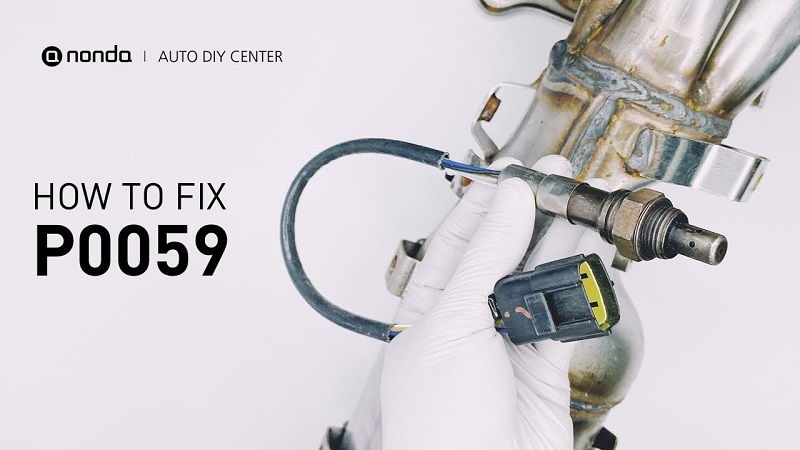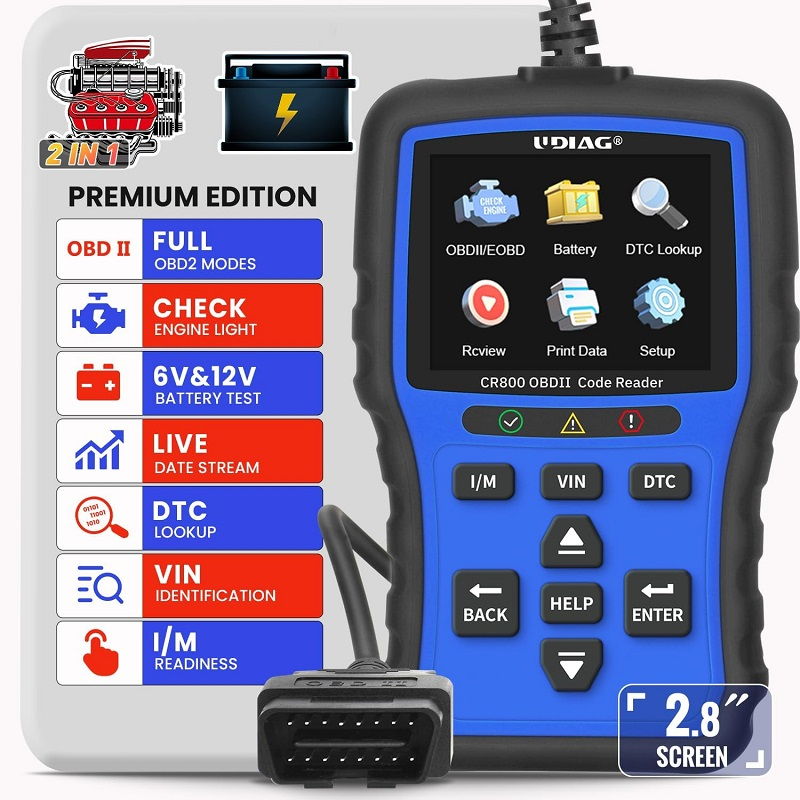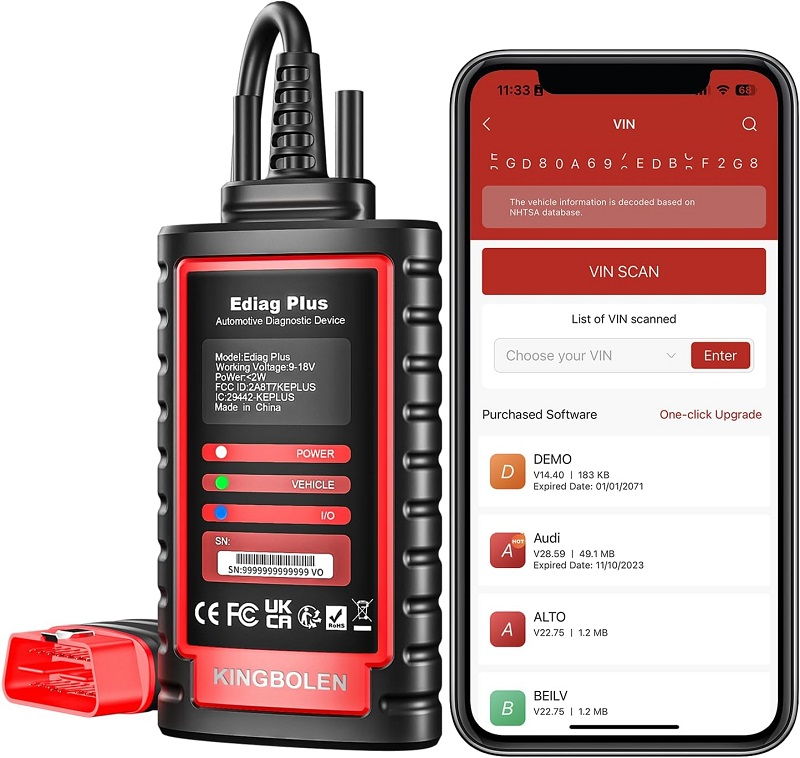This post contains affiliate links. This means I will make a commission at no extra cost to you should you click through and make a purchase [ “As an Amazon Associate, I earn from qualifying purchases.” ]. Read the full disclosure here.
Deciphering P0059 Code: Understanding HO2S Heater Resistance (Bank 2, Sensor 1) GuideMechanic.Com In the intricate landscape of automotive diagnostics, where every flicker of the “Check Engine” light can herald a range of underlying issues, the code P0059 emerges as a beacon of concern.
This diagnostic trouble code (DTC) specifically signals an irregularity in the heater resistance of the HO2S (Heated Oxygen Sensor) on Bank 2, Sensor 1.
Let’s embark on a journey to unravel the intricacies behind P0059, exploring its significance, potential causes, and strategies for resolution.
See Also: P0057 Code HO2S Heater Control Circuit Low (Bank 2 Sensor 2)
Understanding P0059 Code

P0059 is a diagnostic trouble code that indicates a deviation from the expected resistance in the heater circuit of the upstream oxygen sensor on Bank 2 of the engine.
In automotive terminology, “Bank 2” typically refers to the side of the engine that does not contain cylinder 1 in configurations such as V6 or V8 engines. “Sensor 1” designates the upstream oxygen sensor, positioned before the catalytic converter.
Delving into HO2S Heater Functionality
Before delving deeper into P0059, it’s essential to grasp the role of the HO2S in the vehicle’s operation. The oxygen sensor plays a critical role in measuring the oxygen content within exhaust gases, providing vital data for the engine control unit (ECU) to adjust the air-fuel mixture.
Many modern oxygen sensors are equipped with a built-in heater, which accelerates the sensor’s warm-up process, enhancing fuel efficiency and emissions control.
P0059 Code: HO2S Heater Resistance (Bank 2, Sensor 1)
Common Causes of P0059

Several factors can trigger the P0059 code, ranging from electrical malfunctions to sensor anomalies:
Faulty Oxygen Sensor:
A defective oxygen sensor is among the primary culprits behind P0059. Over time, these sensors may degrade or become contaminated, leading to inaccurate readings or heater malfunctions.
Heater Circuit Malfunction:
Issues within the heater circuit, such as a blown fuse, damaged wiring, or a malfunctioning relay, can disrupt the proper operation of the oxygen sensor heater, resulting in abnormal resistance readings.
Exhaust System Leaks:
Leaks within the exhaust system can expose the oxygen sensor to excessive heat or contaminants, potentially compromising the sensor or its heating element and affecting resistance values.
Engine Misfires:
Persistent engine misfires can result in the emission of unburned fuel into the exhaust system, causing the upstream oxygen sensor to operate outside its intended parameters and affecting heater resistance.
ECU or Wiring Aberrations:
Problems affecting the engine control unit or its wiring harness can disrupt the functioning of the oxygen sensor heater circuit, thereby triggering abnormal resistance readings and the P0059 code.
P0059 Code: HO2S Heater Resistance (Bank 2, Sensor 1)
Diagnosing P0059

Diagnosing a P0059 code typically involves a systematic approach to identify the underlying issue:
Code Retrieval:
Utilize an OBD-II scanner to retrieve the stored trouble code and any accompanying freeze frame data, offering insights into the conditions present when the code was set.
Visual Inspection:
Conduct a thorough visual inspection of the oxygen sensor and its associated wiring, checking for signs of damage, corrosion, or contamination. Additionally, scrutinize the vicinity for potential exhaust leaks.
Resistance Testing:
Employ a multimeter to assess the resistance of the oxygen sensor heater circuit. Compare the obtained readings against the manufacturer’s specifications to ascertain the circuit’s functionality.
Sensor Assessment:
Evaluate the oxygen sensor’s responsiveness to fluctuations in engine operating conditions, utilizing diagnostic tools such as a scan tool or oscilloscope. A properly functioning sensor should exhibit consistent and predictable voltage changes.
Check for Related Codes:
Explore the presence of any supplementary trouble codes that could offer insights into interconnected issues, such as misfires or fuel system irregularities.
P0059 Code: HO2S Heater Resistance (Bank 2, Sensor 1)
Addressing P0059

Once the root cause of the P0059 code has been identified, appropriate measures can be undertaken for resolution:
Oxygen Sensor Replacement:
If deemed necessary, replace the faulty oxygen sensor with a new, high-quality unit compatible with the vehicle’s make and model.
Wiring or Connector Repair:
Rectify any damaged wiring or connectors within the oxygen sensor heater circuit, ensuring proper routing and secure connections to prevent future occurrences.
Fuse or Relay Inspection:
Scrutinize the condition of the fuses and relays associated with the oxygen sensor heater circuit. Replace any blown fuses or malfunctioning relays as warranted.
Address Engine Performance Issues:
Address any underlying mechanical issues, such as engine misfires, to prevent future damage to the oxygen sensor or its heater circuit.
Code Clearance and Verification:
Following the resolution of the underlying issue, clear the trouble codes from the ECU’s memory using the OBD-II scanner. Subsequently, conduct a test drive to confirm the absence of the P0059 code recurrence.
Conclusion
See Also: P0058 Code HO2S Heater Control Circuit High (Bank 2 Sensor 2)
In conclusion, P0059 serves as a diagnostic indicator of an anomaly within the HO2S heater resistance on Bank 2, Sensor 1. Understanding the functionality of the oxygen sensor, potential causes of the code, and the diagnostic process is pivotal for effective troubleshooting and resolution.
By adhering to a methodical approach and promptly addressing the identified issues, motorists and technicians alike can navigate through P0059 with confidence, restoring optimal vehicle performance and emissions compliance.
- Used Dump Trucks for Sale Under 5000 - July 18, 2025
- Used Dump Truck for Sale Under $10000 - July 18, 2025
- Used Pickup Truck with Dump Bed for Sale - July 18, 2025
